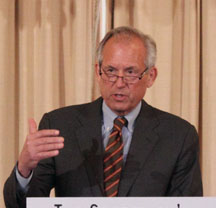A Quote by Naveen Jain
I started off with a company, InfoSpace, with my own funding. The company was listed among the most successful companies and I went on to start Intelius and Moon Express. Now, I focus my time on using the skills of an entrepreneur to solve many of the grand challenges facing us in the areas of education, healthcare, clean water and energy.
Related Quotes
Obviously solving the education problem is big and complex, and there's already so many failings, but coding is the new fluency. This is the most valuable skill of this century. If you want to be a founder of a company, and not even just a tech company, but like a founder of a company, because I'm telling you software is going to play a role.

































